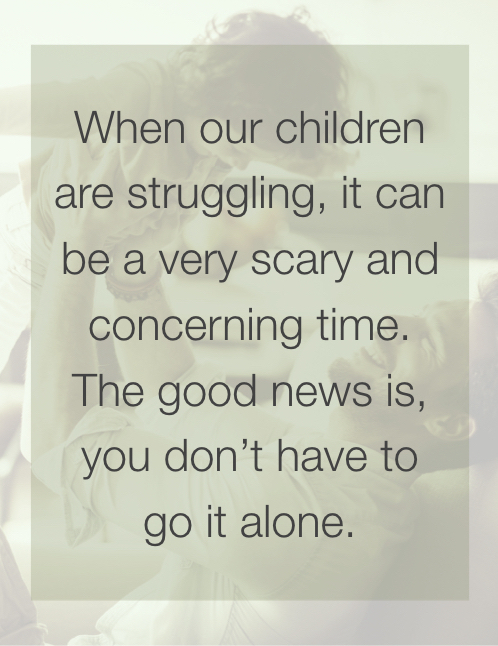
Toddler Diagnostic Assessments
Diagnosis of autism and/or other neurodevelopmental disorders in toddlers before the age of three can be complex. Because there is no simple test, your child is evaluated based on observations of development and behaviors as well as communication with you, the parent, about your concerns.
How We Can Help
At the Family Guidance and Therapy Center we offer a a comprehensive autism evaluation for toddlers between the ages of 12 and 36 months. Depending on the outcome of the evaluation we can then refer you to the necessary early interventions that can be critical for the growth of your child.
Common Questions
How Does It Work?
The multidisciplinary team that will perform the evaluation consists of our Clinical Psychologist, our Occupational Therapist (OT), and our Speech Language Therapist (SLT).
Prior to your visit, we will send you an Infant/Toddler Sensory Profile and the Bayley-4 Social-Emotional and Adaptive Behavior questionnaires to complete. We ask you to bring these two questionnaires with you, along with your intake packet and medical records, to the evaluation.
You will observe while our Psychologist conducts the ADOS-2 Toddler Module. Our Psychologist will also administer the Bayley-4 Cognitive assessment to your child. Our Psychologist will interview you about your child’s Social-Emotional and Adaptive Behavior skills. Next, our SLT will administer the REEL-3 to you by interview and administer the Bayley-4 Language assessment to your child. Our OT will administer the Bayley-4 Motor assessment, speak with you about your child’s sensory-motor functioning, and review your responses on the Infant/Toddler Sensory Profile. Our Psychologist will complete the CASD with input from you, her observations, input from the SLT and OT, and a review of available records.
Finally, you will participate in a feedback meeting. Our psychologist will integrate all of your child’s scores and feedback into an comprehensive written diagnostic report.
How Long Does it Take?
The direct evaluation and feedback meeting will take 4 hours.
You will generally receive a full written report with test results, relevant diagnoses, and recommendations within two weeks of completing testing.
How Much Does it Cost?
The full evaluation, including written report, will cost $3100*.
If you have health insurance, there is a possibility that all or part of your psych testing is covered.
* Every diagnostic test is specifically tailored to the person, funding source, and needs of the individual. Please be advised that if there are additional questions beyond ASD (e.g. ADHD, Learning Disabilities, Neuropsych Testing) that need to be answered, additional testing may be required which will add to the cost. These are the flat rates for Autism Diagnostic Assessments. Any additional costs will be discussed with parents/clients first. Due to Covid-19, procedures may differ from what is detailed on the website. Please give us a call and we can customize a plan that will meet your needs.
It is our goal to make this process as easy as possible for you, especially when it comes to paying for an assessment. We are prepared to accept insurance for all evaluations and will work with your insurance provider to help you qualify. We are in-network with several health insurance companies including Aetna, Anthem, Cigna, BlueShield of CA. This is list is growing every day
We can also check your benefits for out of network costs. If you decide to use your out of network benefits, we will bill your insurance for you. No superbills or waiting on reimbursements.
Technical Details
Toddler ASD Diagnostic Measures (ages 12 – 36 months)
Direct Assessment 2 Hours
Caregiver Interview 1 Hour
Caregiver Questionnaires 1 Hour
- Checklist for Autism Spectrum Disorder (CASD): The CASD rates 30 symptoms of autism, covering six domains: Problems with social interaction, perseveration, somatosensory disturbance, atypical communication and development, mood, and problems with attention and safety. Symptoms are rated based on information drawn from various sources, including teachers, caregivers, parents, direct clinical observation of the child, and available records.
- Autism Diagnostic Observation Schedule, Second Edition (ADOS-2) This semi-structured assessment can be used to evaluate almost anyone suspected of having autism—from toddlers to adults, from children with no speech to adults who are verbally fluent. The ADOS-2 consists of various activities that allow observation of social and communication behaviors related to the diagnosis of Autism Spectrum Disorder. These activities provide interesting, standard contexts in which interaction can occur.
- Bayley Scales of Infant and Toddler Development, Fourth Edition (Bayley-4) The Bayley-4 assesses infant and toddler development across five scales: Cognitive, Language, Motor, Social–Emotional, and Adaptive Behavior. The evaluator administers structured items to the child, and engages the caregiver to support responses where appropriate, to provide assessment of Cognitive, Language, and Motor domains. The Social-Emotional and Adaptive Behavior scales are administered via caregiver questionnaire, which allows caregivers to share their own observations of the child’s abilities.
- Infant/Toddler Sensory Profile (I/T SP) The Infant/Toddler Sensory Profile® was developed to evaluate sensory processing patterns in the very young. The results provide understanding of how sensory processing affects the child’s daily functioning performance.
- Receptive-Expressive Emergent Language Test, Third Edition (REEL-3) The REEL-3 is administered via caregiver interview, and consists of two core subtests—Receptive Language and Expressive Language—and a supplementary subtest—the Inventory of Vocabulary Words. It is typically used to screen for emergent language-learning problems, support clinical diagnosis, set intervention goals, and measure delays.
